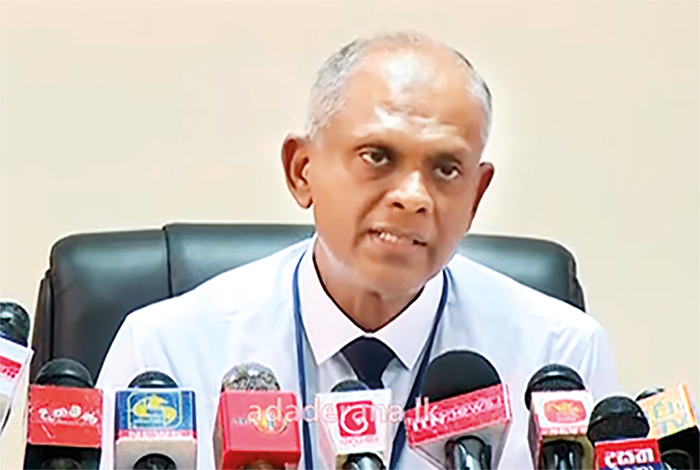NEWS
Customs spokesman rejects COPA concerns

Seevali Arukgoda
By Shamindra Ferdinando
Senior Director of Customs Seevali Arukgoda strongly defended Customs Officers’ Management and Compensation Fund (COMCF) taking 70% of total penalty imposed on public or private sector wrongdoers. The fund is believed to be the largest of its kind in the country.
Arukgoda, who also functions as the Customs spokesperson, insisted that 20% of their share was spent on foreign training for Customs officers, rewards for officers as well as informants and police and security forces personnel responsible for successful detections. The Customs spokesperson said so when The Island sought his response to parliamentary watchdog Committee on Public Accounts (COPA) expressing concern over the government receiving only 30% of the penalty. COPA has been pushing for speedy collection of taxes as the country struggles to meet IMF conditions pertaining to revenue targets.
The COPA pointed out that the 70:30 ratio applied to all penalties imposed on offenders. The all-party committee has asserted that the ratio that had been decided by stakeholders wasn’t fair. Arukgoda pointed out that COMCF provided funds for various needs that should have been otherwise met by the government, and that, too, should have been taken into consideration. Therefore, it wouldn’t be fair to assert that the entire sum was utilised by the Customs rewards’ scheme, Arukgoda said, adding that even the Supreme Court endorsed the operation of that scheme.
Referring to just one incident out of about two, over so many years, the killing of Assistant Superintendent Customs Sujith Prasanna Perera on March 24, 2001 in the Kelaniya police area, Arukgoda said that the fund was meant to assist families of officers in such instances. The fund managed by Customs is subjected to scrutiny by the Treasury and the Auditor General’s Department.
COPA recently questioned the rationale behind Customs taking 70 percent of the Rs 205 mn fine imposed on the government managed venture Lanka Coal Private Limited for furnishing false data when an additional Rs 187 mn VAT (Value Added Tax) could have been imposed instead. Had that been done, the entire sum would have been credited to the Treasury, COPA said. The House asserted that instead of imposing additional VAT after the detection of the offense, Customs imposed a penalty to secure 70% of the penalty.
Arukgoda stressed that the operation of the fund was in line with the law and accepted by all stakeholders. The Customs spokesperson asserted that there was no need to alter the operation of the fund or the method of its funding.
When the top management of the Customs was questioned by the parliamentary watchdog on this matter during a recent meeting in Parliament, officers claimed that they were engaged in discussions with the Treasury to prevent the recurrence of such incidents, according to the statement issued by Parliament.
Responding to further queries, the Customs spokesperson maintained that they couldn’t treat the public and private sector differently. “Some have suggested that state sector enterprises be exempted from penalties. But that cannot be done unless the government amended the relevant laws and regulations,” the outspoken official said, while disclosing that there were other cases involving the Sri Lanka Telecom, Sri Lanka Ports Authority, Ceylon Electricity Board as well as Lanka Coal Pvt. Ltd.
When The Island raised this matter recently at the Presidential Media Centre, State Finance Minister Ranjith Siyambalapitiya said that the Treasury was engaged in a dialogue with Customs in this regard. The Minister said that the issue at hand should be discussed taking into consideration the overall picture.
The minister added that the government was taking appropriate measures to streamline revenue collection. The Minister explained the continuing difficulties experienced by the government in collecting taxes, penalties and interests with over Rs 700 bn tied up in legal cases. The Kegalle district lawmaker said that Rs 943 bn categorized as uncollected taxes according to latest available reports pertained to cases pending the past 20 years.

